Henriette Cramer
Sociotechnical Implications of Generative Artificial Intelligence for Information Access
May 19, 2024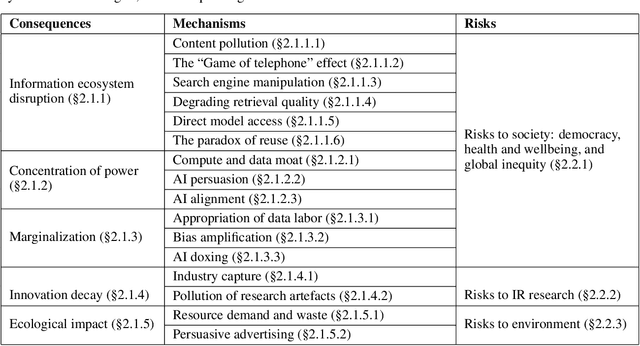
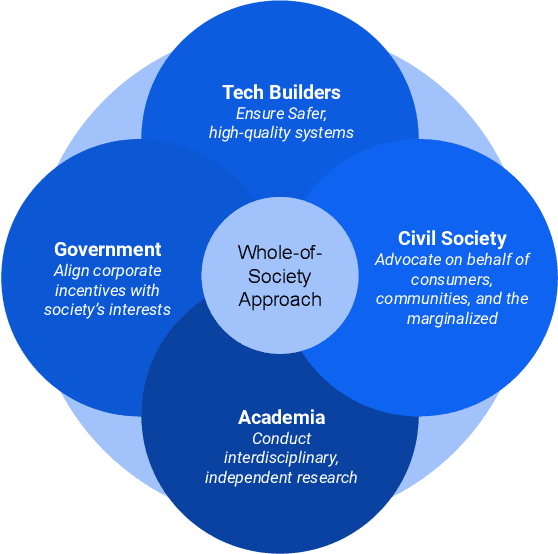
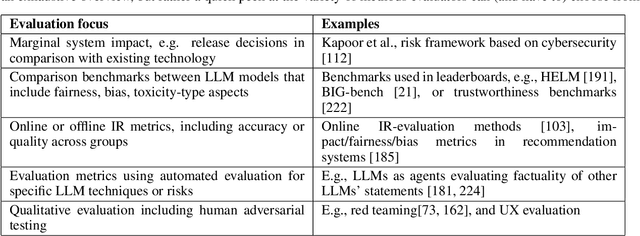
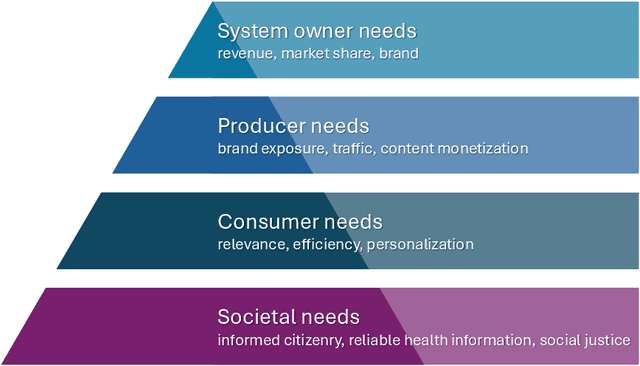
Abstract:Robust access to trustworthy information is a critical need for society with implications for knowledge production, public health education, and promoting informed citizenry in democratic societies. Generative AI technologies may enable new ways to access information and improve effectiveness of existing information retrieval systems but we are only starting to understand and grapple with their long-term social implications. In this chapter, we present an overview of some of the systemic consequences and risks of employing generative AI in the context of information access. We also provide recommendations for evaluation and mitigation, and discuss challenges for future research.
The Engagement-Diversity Connection: Evidence from a Field Experiment on Spotify
Mar 17, 2020
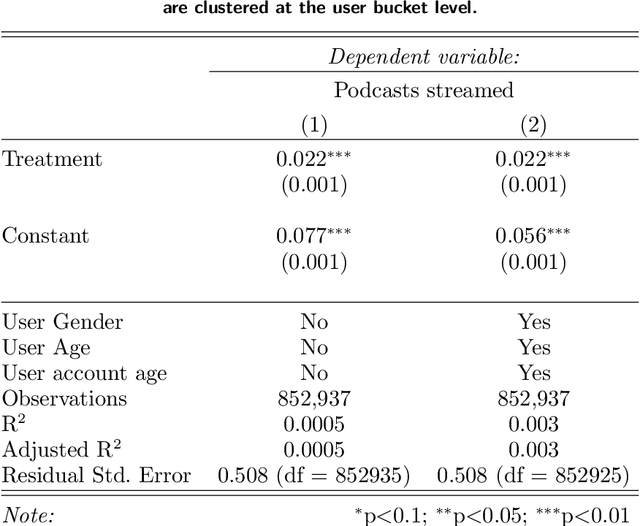
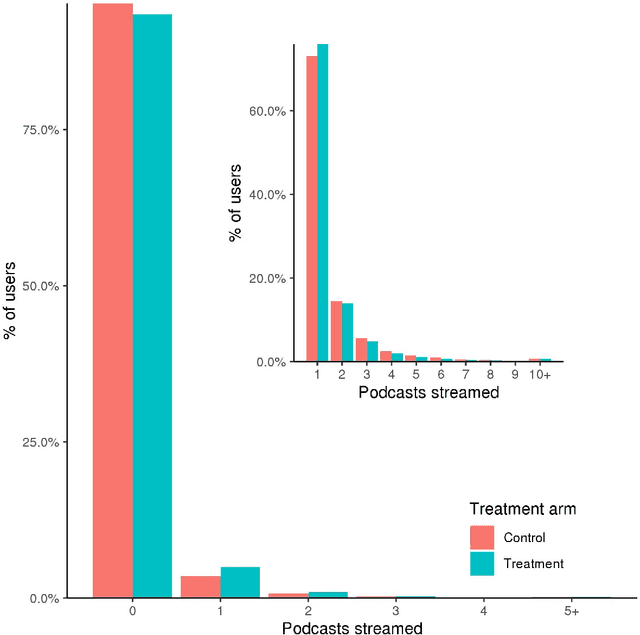
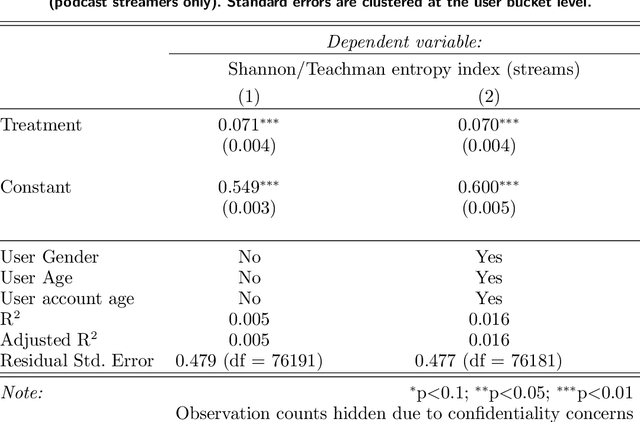
Abstract:It remains unknown whether personalized recommendations increase or decrease the diversity of content people consume. We present results from a randomized field experiment on Spotify testing the effect of personalized recommendations on consumption diversity. In the experiment, both control and treatment users were given podcast recommendations, with the sole aim of increasing podcast consumption. Treatment users' recommendations were personalized based on their music listening history, whereas control users were recommended popular podcasts among users in their demographic group. We find that, on average, the treatment increased podcast streams by 28.90%. However, the treatment also decreased the average individual-level diversity of podcast streams by 11.51%, and increased the aggregate diversity of podcast streams by 5.96%, indicating that personalized recommendations have the potential to create patterns of consumption that are homogenous within and diverse across users, a pattern reflecting Balkanization. Our results provide evidence of an "engagement-diversity trade-off" when recommendations are optimized solely to drive consumption: while personalized recommendations increase user engagement, they also affect the diversity of consumed content. This shift in consumption diversity can affect user retention and lifetime value, and impact the optimal strategy for content producers. We also observe evidence that our treatment affected streams from sections of Spotify's app not directly affected by the experiment, suggesting that exposure to personalized recommendations can affect the content that users consume organically. We believe these findings highlight the need for academics and practitioners to continue investing in personalization methods that explicitly take into account the diversity of content recommended.
Describing and Understanding Neighborhood Characteristics through Online Social Media
Mar 11, 2015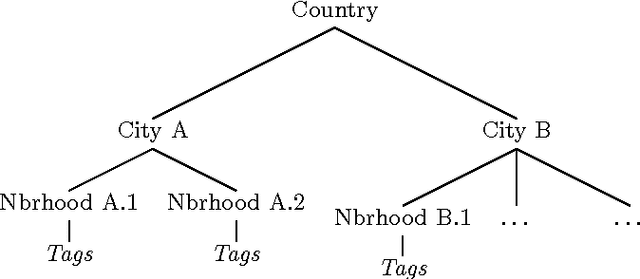
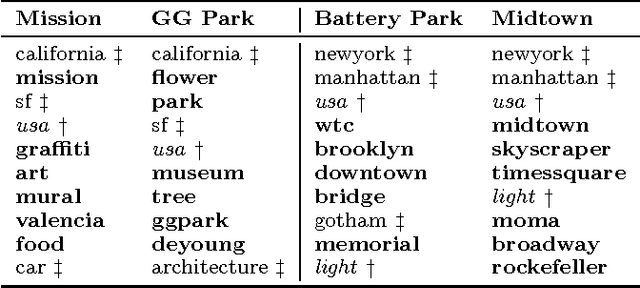
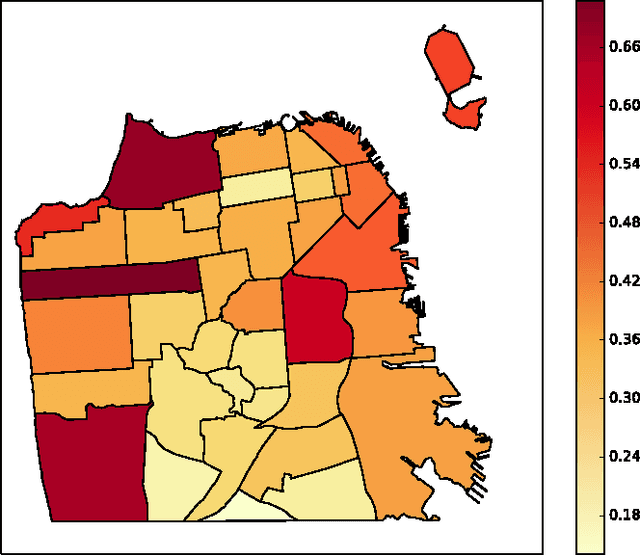

Abstract:Geotagged data can be used to describe regions in the world and discover local themes. However, not all data produced within a region is necessarily specifically descriptive of that area. To surface the content that is characteristic for a region, we present the geographical hierarchy model (GHM), a probabilistic model based on the assumption that data observed in a region is a random mixture of content that pertains to different levels of a hierarchy. We apply the GHM to a dataset of 8 million Flickr photos in order to discriminate between content (i.e., tags) that specifically characterizes a region (e.g., neighborhood) and content that characterizes surrounding areas or more general themes. Knowledge of the discriminative and non-discriminative terms used throughout the hierarchy enables us to quantify the uniqueness of a given region and to compare similar but distant regions. Our evaluation demonstrates that our model improves upon traditional Naive Bayes classification by 47% and hierarchical TF-IDF by 27%. We further highlight the differences and commonalities with human reasoning about what is locally characteristic for a neighborhood, distilled from ten interviews and a survey that covered themes such as time, events, and prior regional knowledge
 Add to Chrome
Add to Chrome Add to Firefox
Add to Firefox Add to Edge
Add to Edge